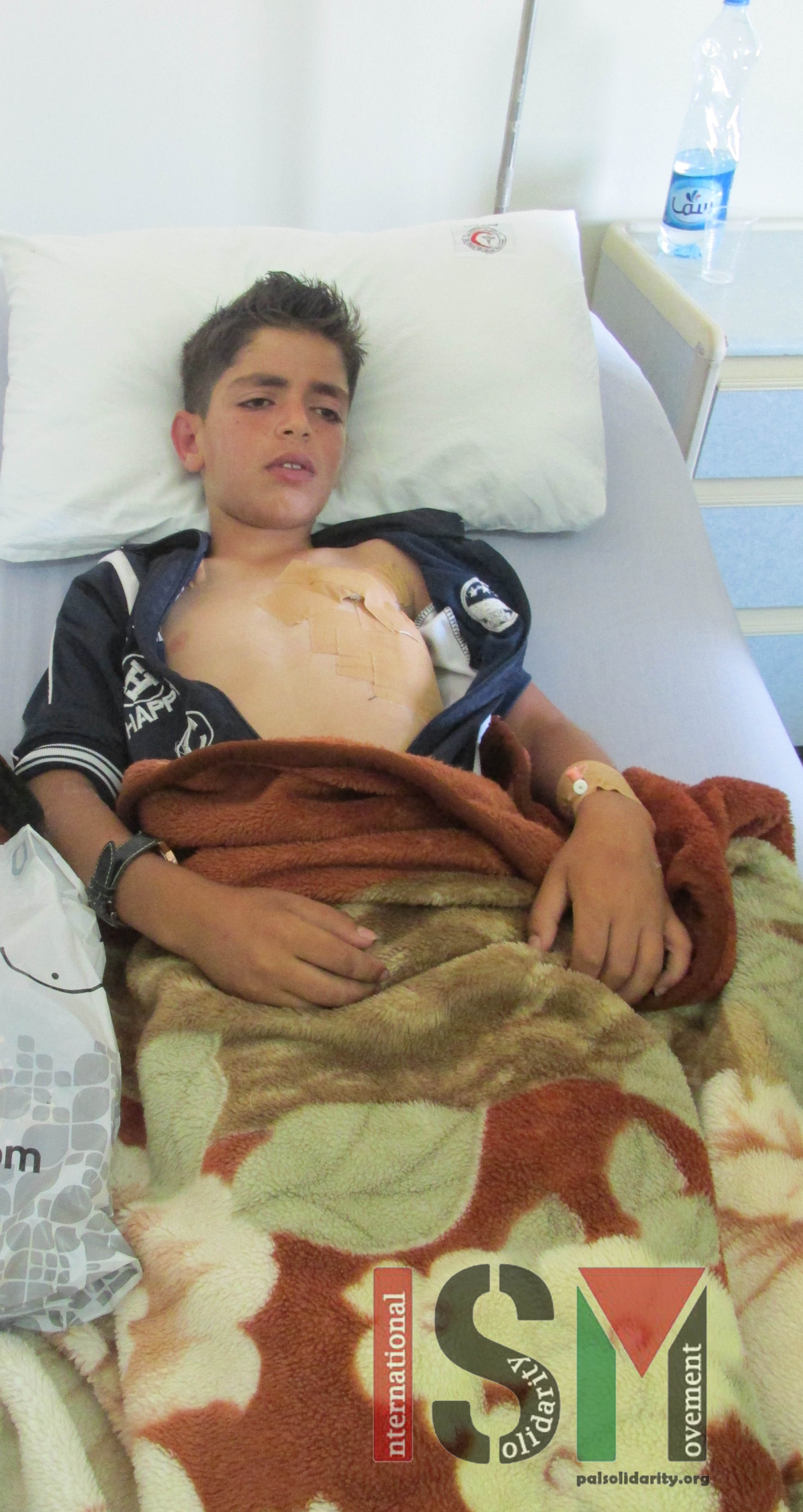Category: Reports
-
Palestinian arrested after filming settlers throwing stones
17th August 2014 | International Solidarity Movement | Occupied Palestine Yesterday at approximately 5:30 PM in the old city in al-Khalil (Hebron) settlers from the illegal settlement of Beit Hadassah threw rocks and water at Palestinians living on Shalala Street. This is a regular occurance for Palestinian families living close to illegal settlements in al-Khalil. The majority…
-
Video: Israeli soldiers celebrate shooting an 18-year-old
12th August 2014 | International Solidarity Movement | Hebron, Occupied Palestine On August 9th in Hebron, Israeli soldiers celebrated shooting an 18-year-old Palestinian youth in the leg with live ammunition. The Canadian volunteer, Vern, who witnessed the soldier firing, stated, “After the soldiers left the roof, I went to confront them about why they had fired. One…
-
10-year-old child shot in chest with live ammunition
6th August 2014 | International Solidarity Movement, Khalil team | Hebron, Occupied Palestine In al-Khalil (Hebron) on Sunday August 3rd, a 10-year-old Palestinian boy was walking to his home near the illegal settlement of Kiryat Arba when the Israeli military shot him in the chest with live ammunition. The following day, ISM volunteers went to visit the…



